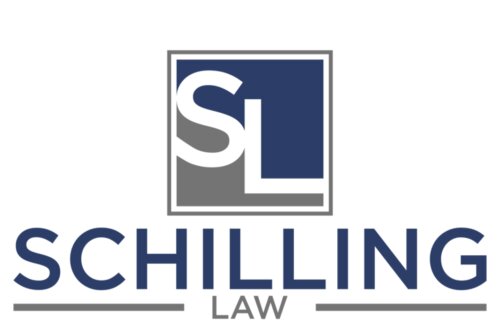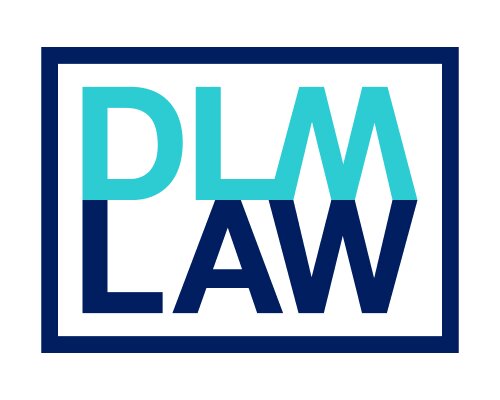Best Antitrust Litigation Lawyers in Kansas City
Share your needs with us, get contacted by law firms.
Free. Takes 2 min.
List of the best lawyers in Kansas City, United States
About Antitrust Litigation Law in Kansas City, United States
Antitrust litigation law in Kansas City involves resolving disputes and enforcing laws that are designed to promote fair competition and prevent monopolistic or unfair business practices. Both federal and state antitrust laws apply in Kansas City, which covers parts of both Missouri and Kansas. Antitrust litigation may arise when companies or individuals are accused of activities such as price fixing, bid rigging, market allocation, or abuse of market dominance. These laws are enforced to protect consumers, ensure fair competition, and maintain healthy economic markets.
Why You May Need a Lawyer
Individuals and businesses may require legal help with antitrust litigation for a variety of reasons. Some common situations include:
- Facing allegations of anti-competitive practices such as price fixing or collusion
- Being investigated by state or federal authorities for violating antitrust laws
- Experiencing harm or losses due to another company’s monopolistic behavior or unfair competition
- Needing representation in lawsuits involving merger challenges or accusations of restricting trade
- Reviewing business strategies for compliance with antitrust regulations
- Challenging unfair restraint of trade in your industry or market
A lawyer experienced in antitrust litigation can provide guidance throughout investigations, help with negotiation and settlement, and represent you in court should the matter go to trial. Legal assistance is crucial for understanding complex laws and building a strong case.
Local Laws Overview
Kansas City is uniquely situated on the border of Missouri and Kansas, and antitrust cases in the area often involve a combination of state and federal laws. The main sources of antitrust law are:
- Federal Laws: The Sherman Act, the Clayton Act, and the Federal Trade Commission (FTC) Act are the primary federal statutes prohibiting anticompetitive agreements and monopolistic practices.
- Missouri Antitrust Law: Missouri statutes mirror many federal protections and allow for state-level enforcement of antitrust actions.
- Kansas Restraint of Trade Act: This Kansas state law provides additional remedies for anti-competitive behavior occurring within the state.
State attorneys general, the FTC, and the Department of Justice may all be involved in investigating or enforcing antitrust claims in Kansas City. The local federal courts, including the United States District Court for the Western District of Missouri and the District of Kansas, frequently handle antitrust cases that have multistate or national implications.
Frequently Asked Questions
What is antitrust litigation?
Antitrust litigation is the process of resolving disputes involving claims of unfair competition, monopolization, price fixing, market allocation, collusion, or other practices that restrict trade and harm consumers or competitors.
What kinds of business practices are prohibited under antitrust laws?
Prohibited practices often include price fixing, bid rigging, horizontal or vertical market allocation, tying arrangements, exclusive dealing, and any action that results in monopolization or the abuse of dominant market power.
How do I know if I have an antitrust claim?
If you believe you have experienced harm due to a competitor’s or supplier’s unfair business practices that limit competition or artificially raise prices, you may have a claim under antitrust laws. Consulting an attorney is the best way to assess your situation.
Who investigates and enforces antitrust laws in Kansas City?
Federal agencies such as the Department of Justice Antitrust Division and the Federal Trade Commission enforce federal laws, while the Missouri and Kansas Attorneys General have authority to enforce state-level antitrust statutes.
Can individuals sue for antitrust violations?
Yes, both businesses and individuals who have been harmed by antitrust violations can initiate private lawsuits to recover damages, stop harmful conduct, and seek other remedies.
What are the penalties for violating antitrust laws?
Penalties may include substantial fines, mandatory changes to business practices, compensation for damages, and in some criminal cases, imprisonment for responsible individuals.
Are mergers and acquisitions subject to antitrust review?
Yes. Large mergers and acquisitions are often reviewed by federal and state authorities to ensure they will not harm competition or give rise to monopolies.
How long do antitrust cases typically take to resolve?
Antitrust litigation can be complex and may take several months or even years to resolve, depending on the nature of the case and whether it proceeds to trial.
Can small businesses be subject to antitrust investigations?
Absolutely. While most cases involve larger companies, smaller businesses can still face scrutiny for anti-competitive agreements or practices that have a significant impact on a market.
How can a lawyer help me with antitrust concerns?
A lawyer can help you understand the law, assess your risk, prepare compliance strategies, defend you in investigations or lawsuits, and help you seek damages if you have been harmed by anticompetitive conduct.
Additional Resources
Several organizations and government bodies provide support, guidance, and enforcement related to antitrust litigation in Kansas City:
- United States Department of Justice - Antitrust Division
- Federal Trade Commission (FTC) - Bureau of Competition
- Missouri Attorney General’s Office - Antitrust Unit
- Kansas Attorney General’s Office - Consumer Protection Division
- American Bar Association Section of Antitrust Law
- Kansas City Metropolitan Bar Association - Antitrust and Trade Regulation Committee
These entities can offer information about antitrust laws, enforcement priorities, and the complaint process for suspected violations.
Next Steps
If you believe you need legal assistance in antitrust litigation, it is important to act quickly. Start by gathering all relevant documents and information related to your case. You should then consult with an attorney who is experienced in antitrust law and familiar with both federal and local statutes governing Kansas City. Many local bar associations provide lawyer referral services to help you find qualified counsel. An initial legal consultation can help determine the strength of your case and the appropriate course of action, whether that means defending against allegations, seeking damages, or ensuring compliance with complex antitrust regulations.
Remember, antitrust laws are intricate and constantly evolving. Timely legal guidance can make a significant difference in protecting your rights and interests.
Lawzana helps you find the best lawyers and law firms in Kansas City through a curated and pre-screened list of qualified legal professionals. Our platform offers rankings and detailed profiles of attorneys and law firms, allowing you to compare based on practice areas, including Antitrust Litigation, experience, and client feedback.
Each profile includes a description of the firm's areas of practice, client reviews, team members and partners, year of establishment, spoken languages, office locations, contact information, social media presence, and any published articles or resources. Most firms on our platform speak English and are experienced in both local and international legal matters.
Get a quote from top-rated law firms in Kansas City, United States — quickly, securely, and without unnecessary hassle.
Disclaimer:
The information provided on this page is for general informational purposes only and does not constitute legal advice. While we strive to ensure the accuracy and relevance of the content, legal information may change over time, and interpretations of the law can vary. You should always consult with a qualified legal professional for advice specific to your situation.
We disclaim all liability for actions taken or not taken based on the content of this page. If you believe any information is incorrect or outdated, please contact us, and we will review and update it where appropriate.











